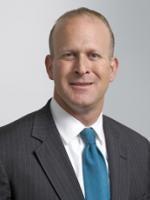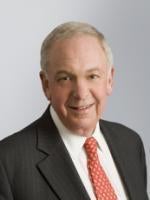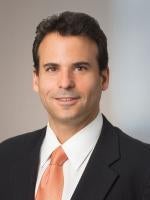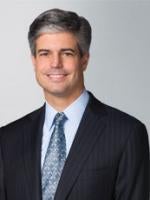Maintaining a beautiful lawn usually requires a lot of work, unless you are friends with Edward Scissorhands or install a "Brady Bunch" lawn of artificial grass instead. Installing artificial grass (or turf) has been an increasingly popular option in the sports industry, but with the average price of installation of a football field being quoted at $380,000, things were bound to get dirty.
In 2010, FieldTurf USA, Inc. and FieldTurf Tarkett, Inc. ("FieldTurf") filed a patent infringement suit against AstroTurf, LLC. (FieldTurf USA, Inc. v. Astroturf, LLC, No. 2:2010cv12492 (E.D. Mich. filed June 23, 2010)). Recently, after a month long trial, a jury found AstroTurf willingly infringed FieldTurf's U.S. patent No. 6,723,412 ("the '412 patent") and awarded FieldTurf $30 million in damages.
FieldTurf and AstroTurf are rivals in the artificial grass industry – manufacturing, selling and installing synthetic turf products for sports and recreational fields. The first major installation of a synthetic grass surface was in 1966 at the Astrodome in Houston, Texas. It was touted as being able to stand up better to wear than natural grass, require less maintenance, and "survive" without sunlight when installed in closed stadiums. However, after extended use, the first generation of artificial surfaces became harder and less resilient, presented drainage problems, interfered with the speed and bounce of balls, caused skin abrasion to players and even gripped players' cleats, representing a risk of injury to players' legs, ankles or knees (including metatarsophalangeal joint sprain, or "turf toe").
With time, manufacturers developed new technologies and "synthetic turf systems" to make it closer to the real thing. This brings us to the turf war around FieldTurf's '412 patent. According to FieldTurf, its '412 patent provides an improved synthetic grass surface that is more resilient, has improved drainage and playing properties, is less expensive to maintain, and less abrasive to players. Shortly after its issuance, at the request of a third party, the USPTO reexamined and confirmed the patentability of all claims of the '412 patent. Although there is still debate about whether artificial turf increases the risk of sports injuries, FieldTurf also claims its product is safer than any other artificial surface and "equal to – if not better than – natural grass in most critical areas of player safety."
For those who want to dig further, the main advance of the '412 patent, according to FieldTurf's filing, was that it employed grass ribbons "having a length about twice as long as the spacing between the rows of ribbons" and in a unique three-layered particulate infill system comprised of a bottom layer of washed silica sand, a mix of cryogenic rubber and silica, and a top layer of larger-sized cryogenic rubber, in which "the thickness of the particulate material is at least two-thirds the length of the ribbons."
Here's a look at FieldTurf's patented system:
|
|
In its infringement complaint, FieldTurf asserted that after the issuance of the '412 patent, AstroTurf offered for sale, sold and installed certain synthetic turf products covered by one or more of the claims of the '412 patent. In addition to the patent infringement claim, FieldTurf alleged violations of the Lanham Act and unfair competition under Michigan common law, asserting AstroTurf had intentionally engaged in unfair methods of competition by making false and/or misleading statements about its products.
Not content to wonder if those patented grass stains would come out in the wash, AstroTurf counterclaimed for a declaratory judgment that the '412 patent was invalid, and not infringed, and also asserted violations of the Lanham Act, unfair competition and defamation. According to AstroTurf, its competitor withheld material information from the USPTO that would have affected the patentability of the '412 patent.
Ultimately, the jury disagreed, finding that AstroTurf willingly infringed the '412 patent and awarding FieldTurf $30 million in lost profits and reasonable royalties. The jury also rejected, in their entirety, AstroTurf's counterclaims, and following the verdict, the parties have filed multiple post-trial motions. Bouncing right up after that ferocious tackle, Astroturf announced that the ruling will not impact customers because it only relates to a limited line of products in its portfolio and that the company may appeal the judgment. For now, however, it looks like the grass is greener on FieldTurf's side.







 />i
/>i


